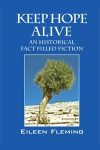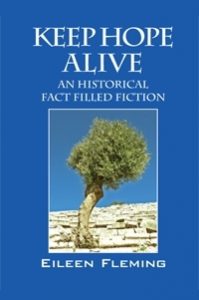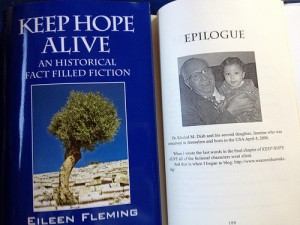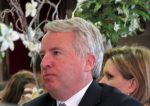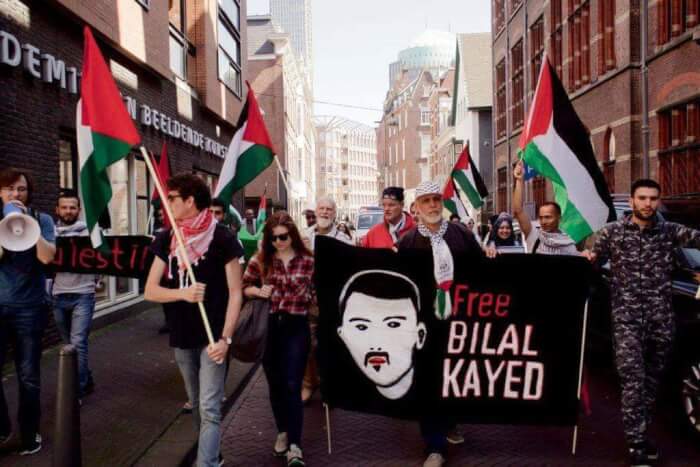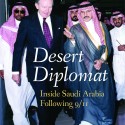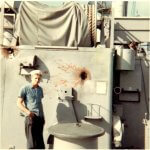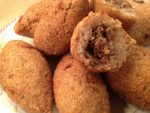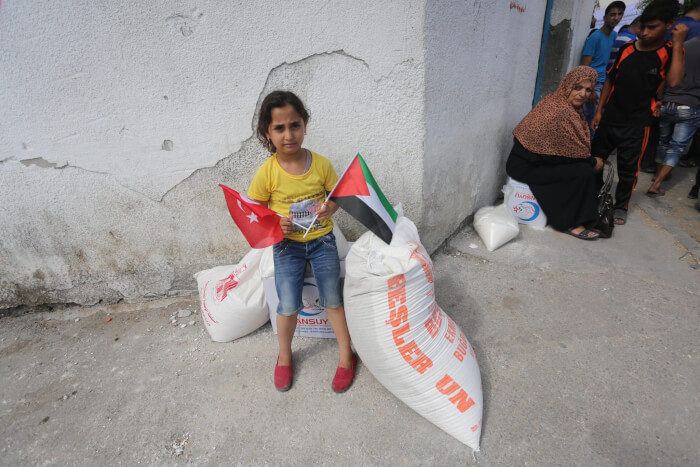The Palestinian EXODUS story told in Keep Hope Alive was inspired by a 1948 Palestinian Muslim refugee from the Galilee who made his way to the USA which led to a lucrative career with TOP Secret Clearance in the Defense Industry during the Cold War
After THAT DAY we call 9/11, Khaled Diab united American Jews, Christians and Muslims to respond to evil with good
By Eileen Fleming
Keep Hope Alive is a Palestinian Exodus Story written by a third generation American with German Jewish, Irish Catholic and Ukrainian roots.
Keep Hope Alive tells the story of Khaled Diab, a 1948 Palestinian Muslim refugee from the Upper Galilee who made his way to the USA and onto the realization of an American Dream.
THAT DAY we call 9/11, inspired Khaled Diab to unite American Jews, Christians and Muslims by founding the Olive Trees Foundation for Peace, to raise awareness and funds for 40,000 fruit bearing trees that were rooted on both sides of Israel’s Wall to help replace the over a million trees The Wall in Palestine has destroyed [before Dr. Diab died in 2015.]
Although some of the characters within KEEP HOPE ALIVE are fictional: everything they say is true and almost everything actually happened!
Excerpted from Chapter One: THE MORNING AFTER APRIL 4, 1968
Mary woke at dawn and re-entered the living room for the first time since she had said goodnight the night before. She was not surprised to see Khaled sprawled out in his recliner or Riad at peace on the sofa. But she was dismayed to see Art curled in fetal position on the black and white checkered tile at the front door.
She gently stepped over him into the red and white kitchen as the morning sun broke through the garden window. The sun illuminated the cherry-blonde slab stump of an ancient olive tree that had been hewn into a kitchen table and received as a wedding gift from family and friends, who lived in Khaled’s hometown, the village of Majd Al Krum, in Upper Galilee. Even on the most frigid morning, Mary felt warmed by the high-gloss patina of the tabletop, but held more dear the signatures and marks from the entire town etched underneath.
Mary silently performed the morning ritual of brewing the first of many pots of Turkish coffee for the day, gratefully inhaled the piquant aroma, and then quickly exited up the back staircase to the bedrooms to wake her daughter for school. When Mary returned to her kitchen after escorting Ahmeena to her third grade classroom, she was not surprised to find Khaled and Riad at the table, downing a second pot of the Turkish brew.
“Please, Mary, don’t say a word. I drank too much, and now I am paying the price.”
“Khaled, the pain in your face brings me to tears; you are clearly suffering. I will not add to your misery. But you, Riad–you look buoyant. What’s your secret?”
Riad chuckled, “Tolerance.”
Mary marveled at how his gleaming pate radiated the sun’s reflection through the garden window that showcased a pendulous purple wisteria and birdbath, where blue jays had immediately gathered to eat the seed she had just put out.
At that moment, Art stumbled into the room, banging his shoulder against the wall and hip into the butcher-block counter. “Oiy! Sylvia is going to fry me! I thought I’d be back at her sister’s by noon, but that bad news about Martin Luther King, Jr., hit us all like a left to the liver! I thought last night would be only good reminiscing, but reality intruded. Hmm, Thanks, Mary, I need this brew.” He nodded and gratefully downed the pungent coffee that Mary had just set before him.
“So, who wants breakfast?”
“Just toast, Mary, my love,” Khaled whimpered weakly.
“Same for me,” Riad beamed, and Mary thought how grateful she was to know him.
Art whispered, “Have you any Mylanta, Mary?”
Mary suppressed a smile as she turned to retrieve it, when the unmistakable seven knock’s of Ahmad was heard at the front door.
“Namaste!” Ahmad bellowed as he opened the red door, reminding Mary of a Cheshire cat without any guile at all.
Riad replied, with a beatific smile, “The God in me salutes the God in you, too.”
“Art, Khaled, look what I found in the gutter,” Ahmad nudged a redheaded muscular youth forward as hard as he could.
“Why, Jack Hunt, I haven’t seen you in weeks; come in, dear.” Mary was always happy to see any of the eleven Hunt children who lived next door.
Khaled stood to welcome his neighbor and asked, “Jack, why aren’t you in class this morning?”
“Well, I didn’t know until I showed up that poli-sci and humanities were both canceled. Both professors are heading to King’s funeral. They both marched with him in 1964. I am free until three, when I have football practice. I was just getting out of the car and hoping to catch up on some sleep, when Ahmad accosted me and dragged me in here.”
Riad stood with his palms together and slightly bowed. “Welcome, Jack. I’m Riad, and the poor fellow to my right is Art.”
“Oh man, Art, you look like shit! I hope it’s not contagious.”
“Shut up and sit,” Art growled…..
Art stabbed out his cigarette and injected, “Yeah, and do you know what Reverend King said just a few weeks ago? He said, ‘Peace for Israel means security, and we stand with all our might to protect its right to exist, its territorial integrity. I see Israel as one of the great outposts of democracy in the world, and a marvelous example of what can be done, how desert land can be transformed into an oasis of brotherhood and democracy. Peace for Israel means security and that security must be a reality.’”
Khaled nearly blubbered, “Reality? The reality is that Israel’s democracy does not extend to Palestinians, whose families have lived there for centuries! Martin Luther King also spoke about not ‘being satisfied until justice rolls down like waters and righteousness like a mighty stream.’ Reverend King also spoke about his people’s great trials, tribulations, and creative suffering. He spoke about injustice, but offered such hope for change, because the American dream is that all men are created equal. This is also the Palestinian dream. Reverend King spoke of his dream, and I, too, have a dream, that underneath the shade of olive trees, the descendants of Abraham will one day sit down at the table of brotherhood.”
Art lit another cigarette as he added, “My rabbi always says, ‘If we would all just do like Micah told, we’d be alright. Do justice, love mercy, and walk humbly with your God.’”
The following excerpt from KEEP HOPE ALIVE was awarded Honorable Mention in the “Expressions of Nakba” contest, an international competition and exhibition that commemorated the 60th anniversary of the Nakba which strove “to present the extraordinary narrative of a dispossessed people through a diverse range of expressions that interpret the collective identity, historic struggle, and emotional experience of the Nakba for Palestinians.”
Chapter Two: The Evening Before June 4, 1968
…The wailing of families throughout Majd Al Krum could be heard for miles that cold night in October 1948. In single file, under the cover of darkness, Khaled, his sister, two cousins and hundreds of neighbors guided by only the light of a crescent moon trekked through the Galilee to Lebanon fearing for their lives, for the Israeli army had surrounded their village.
Twenty-one hours later they reached the town of Bint Jubayl and the family joined the end of a queue at a water well. The land owner offered them drink and hard crusts of bread and Khaled told him of their twenty-one hour odyssey of terror. Their host sighed and shrugged, then handed Khaled a blanket and pointed them down the grove where they could sleep amongst thousands of other Palestinian refugees. When they found an unoccupied olive tree they spread the blanket atop the dirt and roots and huddled together beneath the tree’s broad canopy and fell into an exhausted sleep.
The next day, a mile from the grove, the young family found a vacant, unfurnished room in an unfinished building and sat down. For two days, they moved in a cloud of unknowing as more refugees flooded into Lebanon. On the third day Khaled announced, “We must move on. I say we go to Damascus. I have my teacher’s certificate with me. I will teach the children of wealthy merchants, and we will eat and sleep without fear until we can return home.”
He smiled, remembering the fierce joy of Khaldiyeh and Latifah when they erupted into song and dance, and Little Mo asked, “Why not?” It was their first laugh since leaving home.
The only transportation available was a decrepit old train that had once carried livestock. Hundreds of refugees were packed in like standing sardines and people relieved themselves and vomited all around the young family. After five hours, Khaled noticed the girls looked ready to pass out and announced that they must all jump off.
“I will count to twenty, and then we must all jump at the same time. Are you ready?”
The girls were visibly trembling, but nodded yes. Little Mo appeared stoic, but quaked within. Khaled counted slowly as they all stood at the edge of the open car holding hands. When Khaled screamed “twenty,” he, Little Mo, and Latifah jumped, but not Khaldiyeh!
With astounding power Khaled ran after the train, climbed back aboard, grabbed his sister, picked her up, and jumped off once more. The siblings were scraped and bruised, but grateful to get off that wretched train. They all laughed for the second time since they had fled Majd Al Krum.
The young family walked the remaining mile to Beirut, where they spent the night wide awake in a bus depot, waiting for their ride to Damascus. They were filled with idealistic, youthful hopes, until their connection arrived, carrying thousands of dazed and confused Palestinians.
After disembarking from the long, silent ride, Khaled led his family into a dingy gray Damascus neighborhood. He was able to afford a few nights in a sparsely furnished attic room. On the third day, he ventured alone into the center of the cradle of civilization.
The Damascus streets sights and smells overwhelmed Khaled’s senses. His gait slowed to a shuffle as he inhaled and savored the pungent spices of meats and the sweet perfume of fresh fruits. He stopped at a booth displaying rugs and despaired at the thought of his family sleeping another night on a bare floor.
With a crooked smile the Syrian merchant inquired, “Which carpet is it that you desire?” Khaled pointed to the thinnest scrap and asked “How much?”
“Only 125 Syrian liras. It is a bargain, and it is a fine eye you have for excellent quality. I see you are a smart young man, who will not pass up my gracious offer.”
Khaled was shocked into silence. The amount was five times more than he possessed. He turned to leave, as the rug merchant shouted, “How much can you spend? You cannot just walk away from me. What can you afford? You cannot treat me this way! You must answer me. How much can you spend?”
Khaled never had experienced such a verbal assault from any of the merchants in his hometown, and blurted out, “I have twenty-five Syrian liras.”
The rug merchant’s face clouded over with concern, and he asked, “Ah, young man, are you a refugee?”
Khaled sighed and nodded sadly.
The merchant smiled broadly as he extended his palm to receive all that Khaled had and effusively expressed, “I am so very sorry for all of you refugees. My dear boy, I will lose a lot by accepting your offer. But I feel so sorry for you. I will suffer the loss to make a poor refugee happy.”
Khaled ran and danced his way home, proudly carrying the scrap of wool high above his head. The young family danced with joy on top of their new rug until a booming knock on their door startled them into silence. Khaled opened the door and in popped their landlady, “Just what is all the commotion about? I thought you were coming through the ceiling; you all made so much noise,” she complained.
Khaled proudly pointed to the rug and told of the excellent bargain he had made. The landlady stood upon the scrap and sniffed twice. She spoke through a smirk, “Oh, I have the same rug and paid only nineteen Syrian liras for it.”
…….One month after fleeing their comfortable home in Majd Al Krum the family traveled on bus and train for the two day journey to Khaled’s new job as a math teacher in the town of Hasaka, Syria.
The train was unheated, and the bus carried people, goats, sheep, and chickens that spilled out from all sides. They traveled on rocky dirt roads and saw only homes made of mud. By midnight, they arrived at the town of Hasaka and checked into the nearest hotel. Khaled was aghast when he opened his thin wallet and handed over the first night’s rent. They were now out of money.
Their senses were assaulted by the damp, musky smell that permeated the tattered building on the way to their room furnished with only four thin mattresses on a wooden floor, a chipped table, a cracked water pitcher, and a naked light bulb set in an old wine bottle. The three fell asleep immediately, but Khaled remained wide awake engulfed by dark, tormenting thoughts of suicide and homicide in those last few hours before he reported to his first day on the job.
At three AM, the door shot open, and in charged two Syrian policemen. The girls screamed and the police accused them of prostitution. In fear and trembling, Khaled recounted the events of the past month as the police examined their papers and it was nearly dawn before the police were satisfied and left.
Khaled’s dark mood turned more bitter with every step towards the school building on that frigid damp morning. He sighed and fumed as he waited for the Principal, Mr. Hamza to arrive.
When he did, Khaled could barely mumble a greeting and followed the regal Kurd in a daze, to his classroom where Mr. Hamza introduced him to the students, waved and left.
Khaled looked into the eyes of thirty adolescent boys, picked up the math book and demanded to know just what they did and did not know. The bravest boy in the class blurted out indignantly, “What is your problem? We just want to learn, not fight with you.”
Khaled retorted, “You all may be too stupid to learn anything, but I will try.”
At the end of the school day, the students cut and ran from Khaled and descended upon Mr.Hamza’s office demanding he fire the new math teacher. After hearing them out, Mr. Hamza found a trembling Khaled sitting in the darkened classroom and softly inquired, “What happened in here? Is it money? Do you need money?”
Without waiting for a reply, Mr. Hamza opened his wallet, took out a month’s worth of wages, and handed it to Khaled, “Now Khaled, go home, feed your family, and get some sleep. And make sure you report back to work tomorrow morning. Don’t thank me, but help another whenever you can.”
Read more HERE
Eileen Fleming is TADN’s volunteer Health Reporter and Senior Non-Arab Correspondent
Fleming produced the UNCENSORED “30 Minutes with Vanunu” Mordechai, Israel’s nuclear whistleblower
On 8 June 2017, Eileen Fleming begins taping “This American and the USS LIBERTY Documentary”
Contact her HERE
- Vanunu still has more nuclear secrets to spill, Israeli court declares - December 29, 2021
- 9/11 and a 20th Reflection of That Day - September 5, 2021
- Mordechai Vanunu: Final Annual Update and this Writers Next Steps - June 19, 2021













